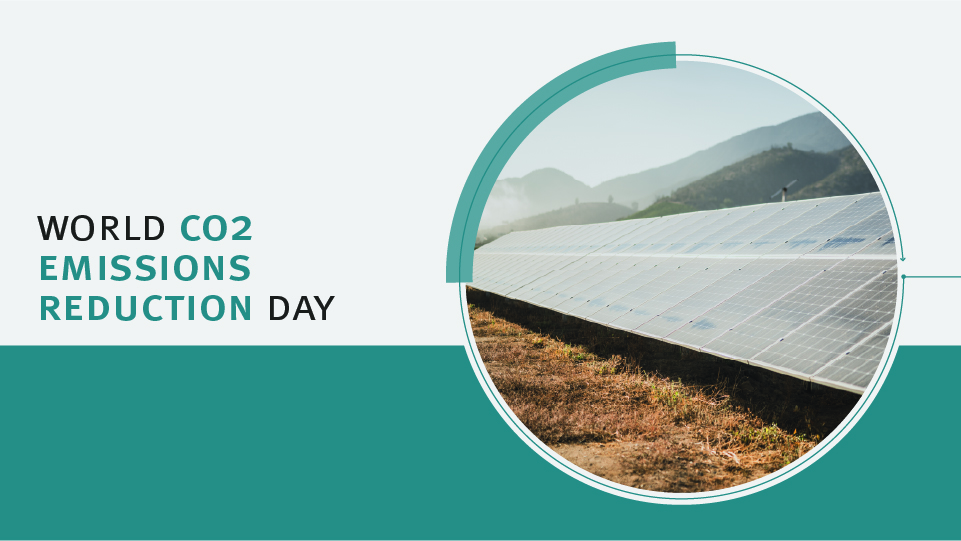- Sustainability
- January 26th, 2023
Viña Concha y Toro is continuing to reduce its CO2 emissions
As part of our commemoration of International Reducing CO2 Emissions Day, find out more about our tools for reducing our environmental impact.
International Reducing CO2 Emissions Day, held on January 28, is a key date for promoting global decisions that aim to take care of our planet and its people. At Viña Concha y Toro, we understand that as a wine industry leader we face the major challenge of reducing impacts throughout our value chain.
Measuring carbon footprints is one way of understanding the impact of human activities on our environment. Through various internal sustainability initiatives and collaborative efforts with our supply chain, Viña Concha y Toro has been able to reduce its Co2e emissions in Chile over the last 10 years as part of its sustainability strategy.
“As a company, we set ourselves the challenging goal of reducing our emissions. As we have continued to grow, our carbon emissions continue to decrease thanks to our enduring sustainability initiatives, which have also been well received by our suppliers”, said Viña Concha y Toro’s Sustainability Director, Valentina Lira.
“Today, incorporating climate goals into the supply chain is key for all companies, and in our case our suppliers have risen to the challenge. We are on the right track, but we are still far from feeling like we have achieved our goal, which continues to motivate us to work for a better future and to achieve Viña Concha y Toro’s sustainable vision”, she added.
The company’s CO2e measurements decreased by 49% between 2011 and 2021 for direct emissions (produced by the company), while indirect emissions (produced by suppliers) decreased by 30%.
Since 2007, when Viña Concha y Toro first measured its carbon emissions, the company has become a pioneer in decreasing emissions in order to reduce its negative impact on the environment and contribute to global emissions reduction goals and a low-carbon future, demonstrating its sustainable vision.
In 2011, the company achieved a key milestone in its emissions sources: 90% of its emissions originated from upstream sources; that is, in its supply chain. This encouraged Viña Concha y Toro to take decisive action to counteract these emissions and start to involve its suppliers in its climate action, resulting in a reduction in both direct emissions, produced by the company, and indirect emissions produced by its suppliers in their own processes.
Between 2017 and 2021, Viña Concha y Toro reduced its emissions beyond its own voluntarily established goals. In 2021, its CO2e emissions totaled 181,000 tons, below the forecast of 225,000 tons.
Another key factor in this progress was that in 2018, thanks to the increased flexibility of Chile’s energy market, Viña Concha y Toro incorporated the use of renewable energy in its operations, enabling it to reduce its energy-related emissions.
Our subsidiaries’ climate commitments
At the end of 2021, the Bonterra and Fetzer wine brands achieved Climate Neutral certification after measuring, reducing and offsetting 110% of greenhouse gas emissions from wine production and delivery.
Bonterra Organic Estates has recently formally committed to the Science-Based Target initiative, a global partnership that encourages ambitious climate action in the private sector by helping organizations set and achieve emission reduction and decarbonization targets based on the best available scientific evidence.
Our Argentine subsidiary, Bodega Trivento, has also adopted measures that seek to mitigate CO2 emissions into the atmosphere, including the commissioning of the solar power plant, the installation of more efficient refrigeration equipment at the Maipú Winery, the replacement to LED lights in all facilities and the change in the use of refrigerant gasses to other more environmentally friendly ones.
Thanks to these measures, direct emissions (scope 1) and indirect emissions (scope 2) of CO2 went from more than 6 million kg of CO2 to just over 4 million kg in 2018.



